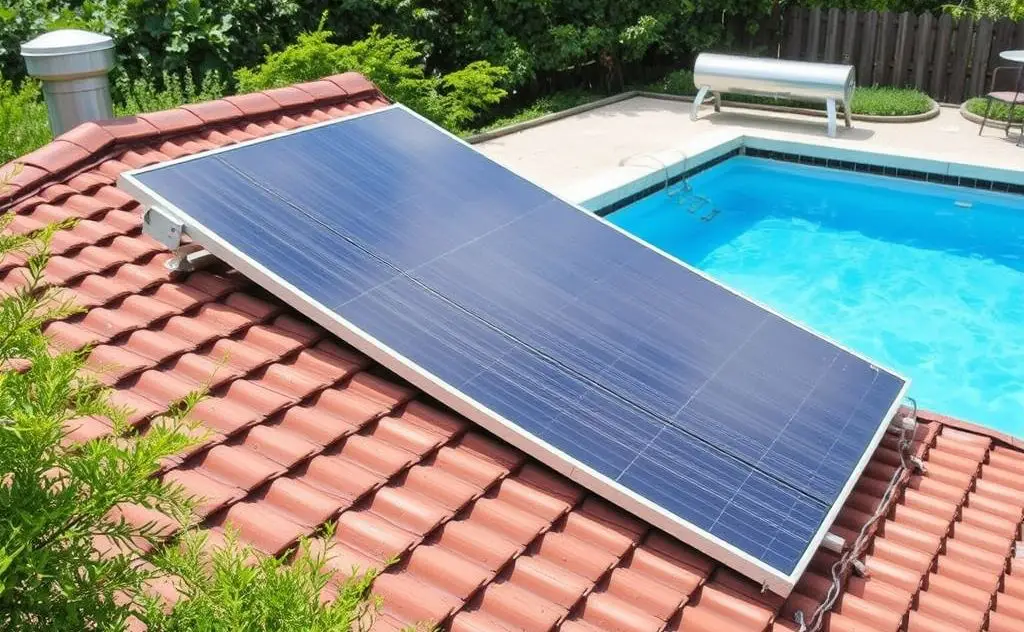Yes, solar heaters can be effectively used for pool heating, providing an eco-friendly and cost-efficient way to maintain warm water temperatures.
Solar pool heaters harness sunlight to warm your pool water, offering an energy-efficient alternative to gas or electric heaters. These systems can extend your swimming season while reducing energy costs by up to 80% compared to conventional heating methods.

How Solar Pool Heaters Work
A solar pool heating system circulates water through solar collectors where it absorbs heat before returning to the pool. The basic components include:
- Solar collectors (panels that absorb sunlight)
- Filter (removes debris before water enters collectors)
- Pump (circulates water through the system)
- Flow control valve (directs water flow)
When properly sized, these systems can maintain pool temperatures between 78-85°F even in cooler climates. For optimal performance, consider pairing your solar heater with a quality check valve to prevent backflow.

Types of Solar Collectors
Unglazed Collectors
Made from UV-resistant rubber or plastic, unglazed collectors are:
- Most cost-effective (typically $10-$20 per sq ft)
- Ideal for seasonal use in warm climates
- Prone to heat loss in cold weather
Glazed Collectors
Featuring copper tubing and glass covers, glazed collectors:
- Cost more ($30-$100 per sq ft)
- Maintain efficiency in cold weather
- Suitable for year-round use
According to U.S. Department of Energy, glazed systems are 10-15% more efficient but may not be cost-effective for seasonal pools.
Sizing Your Solar Pool Heater
The collector area should typically cover 50-100% of your pool’s surface area. Consider these factors:
| Pool Use | Collector Size | Climate |
|---|---|---|
| Seasonal (3-6 months) | 50-60% of pool area | Moderate |
| Extended season | 70-80% of pool area | Cool |
| Year-round | 100% of pool area | Warm |
For example, a 400 sq ft pool in Massachusetts would need 280-320 sq ft of collectors for extended season use. In Florida, the same pool would need 400 sq ft for year-round heating.
Installation Considerations
Optimal Placement
Collectors perform best when:
- Facing true south (within 45°)
- Tilted at an angle equal to your latitude
- Unshaded between 9am-3pm
System Components
Beyond collectors, you’ll need:
- Adequate pump capacity (existing may need upgrade)
- Proper plumbing connections
- Automatic controls for efficiency
For complex installations, consider professional help. The right control system can optimize performance.
Costs and Savings
Solar pool heating systems typically cost $2,500-$8,000 installed. Key factors affecting price:
- Collector type and size
- System complexity
- Local labor rates
According to Energy.gov, solar pool heaters pay for themselves in 1-7 years through energy savings. They also last 10-20 years – significantly longer than gas heaters.
Maintenance Tips
Keep your system running efficiently with:
- Annual inspection of collectors and plumbing
- Regular filter cleaning
- Winterizing in cold climates
- Monitoring system pressure
For optimal performance, pair your solar heater with a quality controller to automate temperature management.
Climate Considerations
Solar pool heaters work in most climates, but effectiveness varies:
- Sunny climates: Can maintain 10-15°F above ambient
- Northern states: Best for season extension (spring/fall)
- Cloudy regions: May require supplemental heating
Even in cooler areas, solar can reduce conventional heating costs by 50-70% during swimming season.
